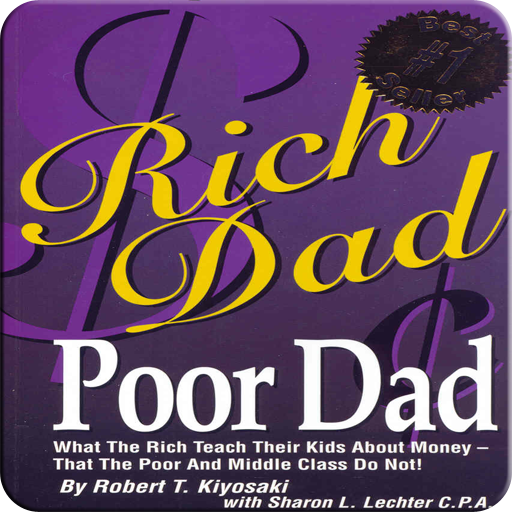Because I had two influential fathers, I learned from both of them.
由于我有兩個對我有影響力且可以向其學習的爸爸,
I had to think about each dad's advice, and in doing so,
迫使我不得不去思考每個爸爸的意見,
I gained valuable insight into the power and effect of one's thoughts on one's life.
由此,我認識到一個人的觀念對其一生巨大的影響力。
For example, one dad had a habit of saying, I can't afford it.
例如,一位爸爸愛說"我可付不起"這樣的話,
The other dad forbade those words to be used.
另一位爸爸則禁止用這類話,

He insisted I say, How can I afford it?
他會說"我怎樣才能付得起呢?"
One is a statement, and the other is a question.
一個是陳述句,另一個是疑問句,
One lets you off the hook, and the other forces you to think.
一個促使你放棄,另一個則促使你去想辦法。
My soon-to-be-rich dad would explain that
那很快就致富的爸爸解釋道,
by automatically saying the words I can't afford it, your brain stops working.
說"我付不起"這種話會阻止你去開動腦筋想辦法;
By asking the question How can I afford it? your brain is put to work.
而問"怎樣才能付得起"則開動了你的大腦。
He did not mean buy everything you wanted.
當然,這不意味著人們必須去買每一件你想要的東西,
He was fanatical about exercising your mind, the most powerful computer in the world.
這里只是強調要不斷鍛煉你的思維--實際上人的大腦是人類最棒的"計算機"。
My brain gets stronger every day because I exercise it.
富爸爸時常說:"腦袋越用越活,腦袋越活,掙錢就越多。
The stronger it gets, the more money I can make.
腦袋越活,掙錢就越多。
He believed that automatically saying I can't afford it was a sign of mental laziness.
在他看來,輕易就說"我負擔不起"這類話是一種精神上的懶惰。











